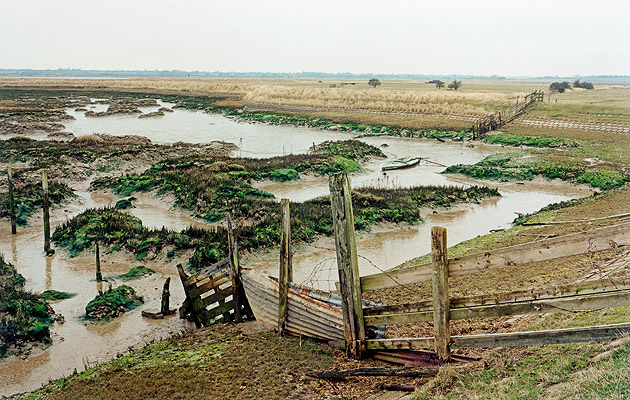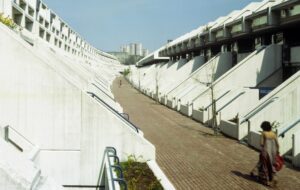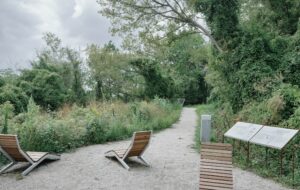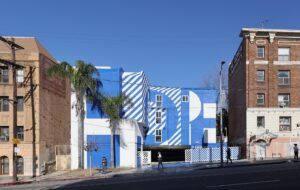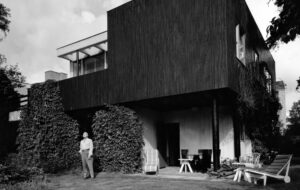|
A view of Hornsey in Essex, by Jason Orton (image: Jason Orton; thenewenglishlandscape.wordpress.com) |
||
|
Ken Worpole and Jason Orton reveal utopian traces in the English flatlands, says Sukhdev Sandhu For well over 40 years Ken Worpole has been one of the most eloquent and forward thinking writers in Britain. Having left school at the age of sixteen to study civil engineering, in 1971 he helped to set up Centreprise, a widely-celebrated community bookstore in Hackney that also operated as the publisher of working-class memoirs, poetry and oral histories. For Worpole, culture has never been about artefacts or buzz or the pursuit of prestige from the custodians of the literary establishment; rather, it’s a way of thinking about social ecology and about protecting and advocating for those public spaces (everyday “heterotopias”, to use the language of Michel Foucault) where people from different walks of life may mingle: hospices, parks, libraries, canals, even (after death) cemeteries. The New English Landscape, a collaboration with photographer Jason Orton, is a characteristically fine grained and suggestive book about a different kind of public space: the flatlands of East Anglia and, to an even greater extent, Essex. He makes telling reference to a 2003 Country Life survey that awarded Essex no marks at all for the quality of its landscapes. Perhaps the journal’s voters were still in thrall to the patronising but widely harboured notion that the county is ersatz and embarrassing, home to chavs and Tory voters, white refugees on the run from London’s multiculturalism. Worpole, by contrast, is drawn to the eerie social panoramas, deep topographies and rich cultural histories that it offers open-minded yompers. His Essex is a utopian palimpsest, the site of countless socialist and anarchist “land colonies” founded by dreamers and reformers such as Joseph Fels, an American soap manufacturer and philanthropist whose early 20th-century Mayland community was visited by Kropotkin, Rider Haggard and Sidney and Beatrice Webb. This Essex also has a rich, if increasingly eroded military past; its coastline dotted with pillboxes and tank-traps. Here is the terrain deluged by the 1953 North Sea Flood, one of the worst natural disasters ever to hit England, which killed over a hundred people (and 200 more in Norfolk and Sussex). Worpole’s version of pastoral has little in common with the twee villages and fuzzy bucolics invoked by conservative politicians claiming they represent the heart of Englishness. This is wilder territory, strewn with messy modernity, tattooed by industry. Worpole himself suggests that it may be a species of “edgeland”, an increasingly common term to describe scrappy landscapes that are neither wholly urban nor rural, but that can’t be described as suburban either. These interzones have been the subject of books (Richard Mabey’s The Unofficial Countryside, Nick Papadimitriou’s Scarp) and films (Nikolaj Bendix Skyum Larsen’s Portrait of a River, Kieron Evans and Karl Hyde’s The Outer Edges). Their appeal signals the decline of psychogeography as a would-be subversive mapping practice, and perhaps also a feeling that the nation’s big cities are now overdocumented. Worpole is especially strong on the aesthetic challenges – and possibilities – of the east coast. Its wintry aura suggests muted, grey colour-schemes; its widescreen skies emphasise horizontality; the relative scarcity of built-up environs encourages minimalist treatments. He draws attention to how chroniclers of these estuarine landscapes often portray them shorn of their inhabitants or labourers, and in so doing erase a vital dimension of their identities. Orton’s uncaptioned photographs are quietly complementary: some of those documenting a gigantic land-reclamation project at Thames Haven, where 30 million cubic metres of sand are being dredged for the construction of London Gateway container port, depict it as a beige lunar colony, a glum yet mesmerisingly provincial take on Emirati terraforming developments. All told, The New English Landscape is beautifully written and designed, another fine addition to the library of vital books by Ken Worpole. The New English Landscape by Jason Orton and Ken Warpole, Field Station, £15 |
Words Sukhdev Sandhu |
|
|
||

